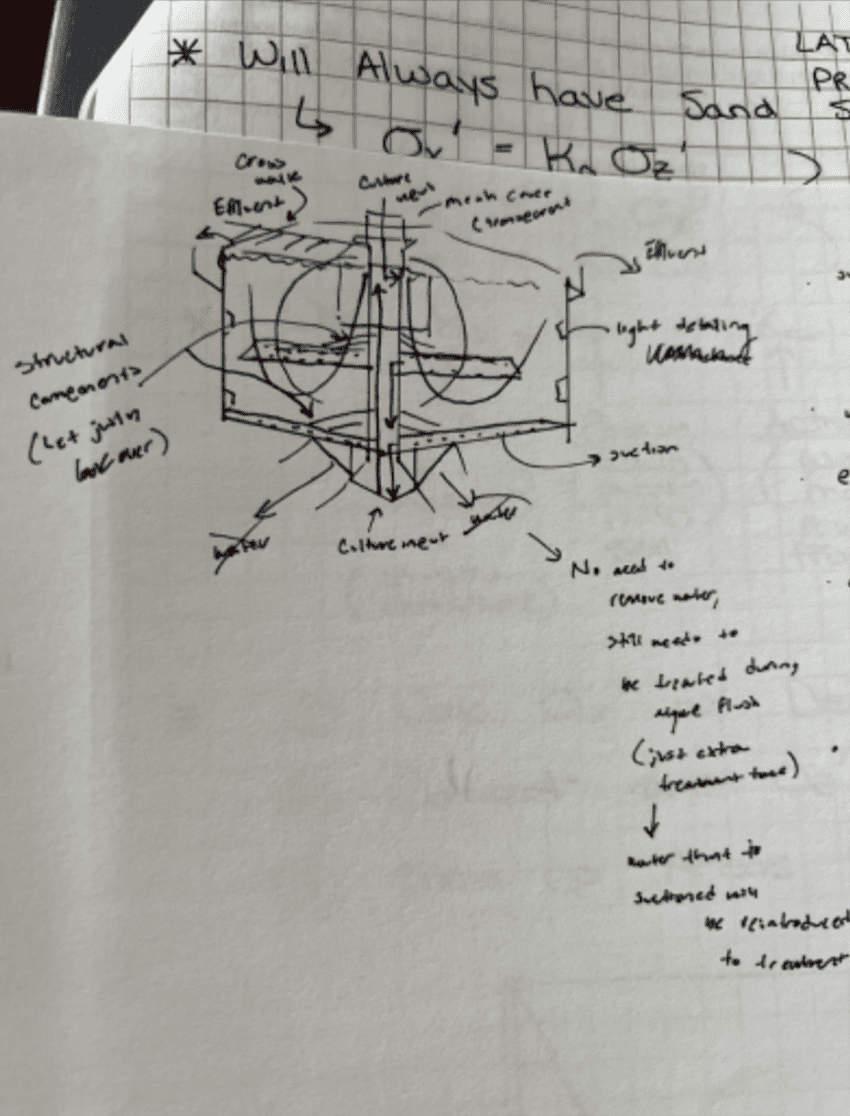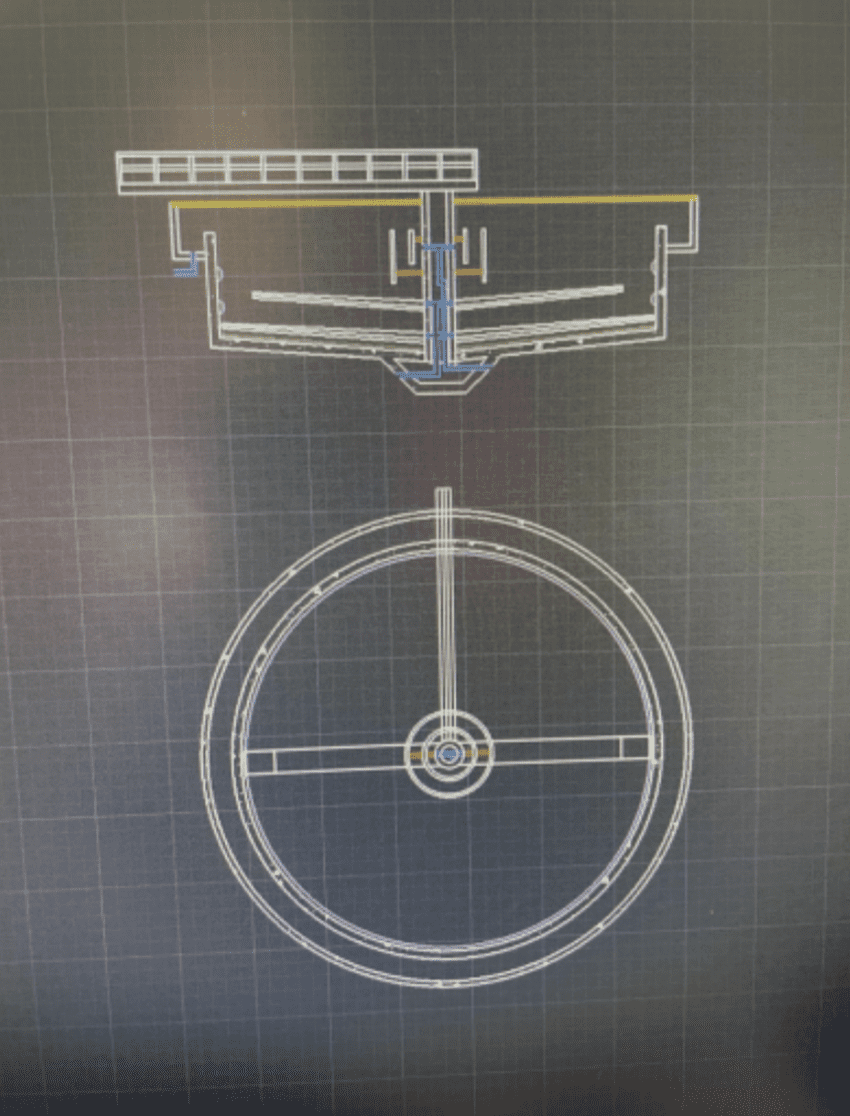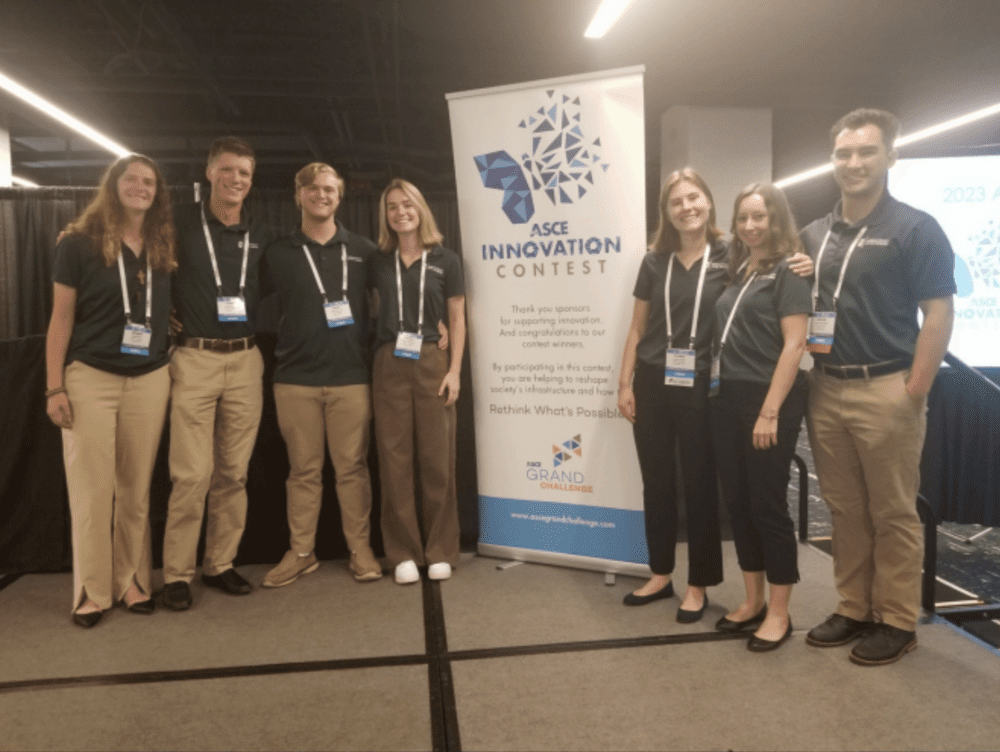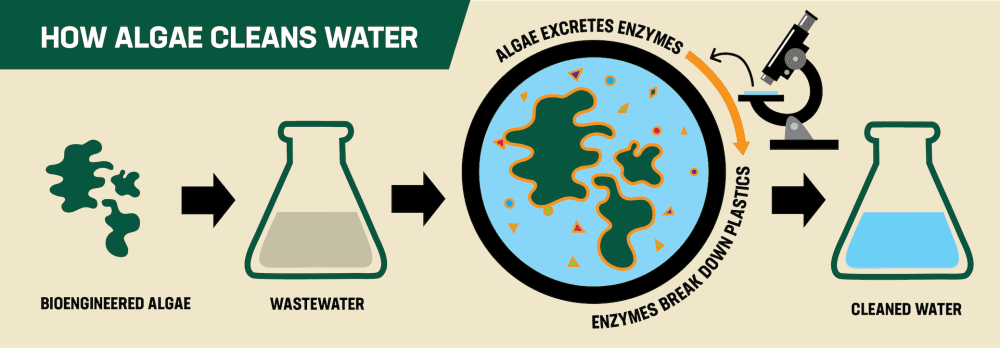Path to a Patent
Jordan Landis, as an undergraduate in the William States Lee College of Engineering, was encouraged by Olya Keen, associate professor of environmental engineering, to co-lead a competition team. The team would have the opportunity to participate in a national innovation contest hosted by the American Society of Civil Engineers.


The challenge was to tackle microplastics. The challenge was even steeper since there are no industrial best practices and virtually no regulations around them. Knowing that Keen was the advisor to this student team and a known expert in emerging contaminants like plastics, Landis jumped in with both feet.

While a typical water treatment approach involves removing algae, Landis and her team wondered if algae could play a positive role in the elimination of plastics in water. They soon learned of an enzyme that had been proven to degrade plastic in dry scenarios, but it had never been tested in water. So the students networked with other researchers across the country and discovered that algae could be bioengineered with that particular enzyme here in the states. Now they had access to a weapon that could be tested against water-borne microplastics.
The implementation steps were the last part of their design, but this had never been done before. Undaunted by the innovation challenge, Landis led the team through the hard work of developing a method to introduce the algae into a standard wastewater treatment process, reducing the microplastics, then harvest the algae back out. They named it the “Charlotte Algae Microplastic System.” With only a few months of work, Landis and her fellow Niners emerged from the national innovation competition with both a novel approach to wastewater treatment as well as the 1st place overall award.

Upon returning to campus from the competition, Landis took the time to visit UNC Charlotte’s Office of Research Commercialization and Partnerships. She understood the importance of intellectual property, and partnered with the office to prepare and file a new utility patent application. At UNC Charlotte, even undergraduate students have the opportunity to file patent applications on new research and discoveries, an uncommon opportunity among American universities.